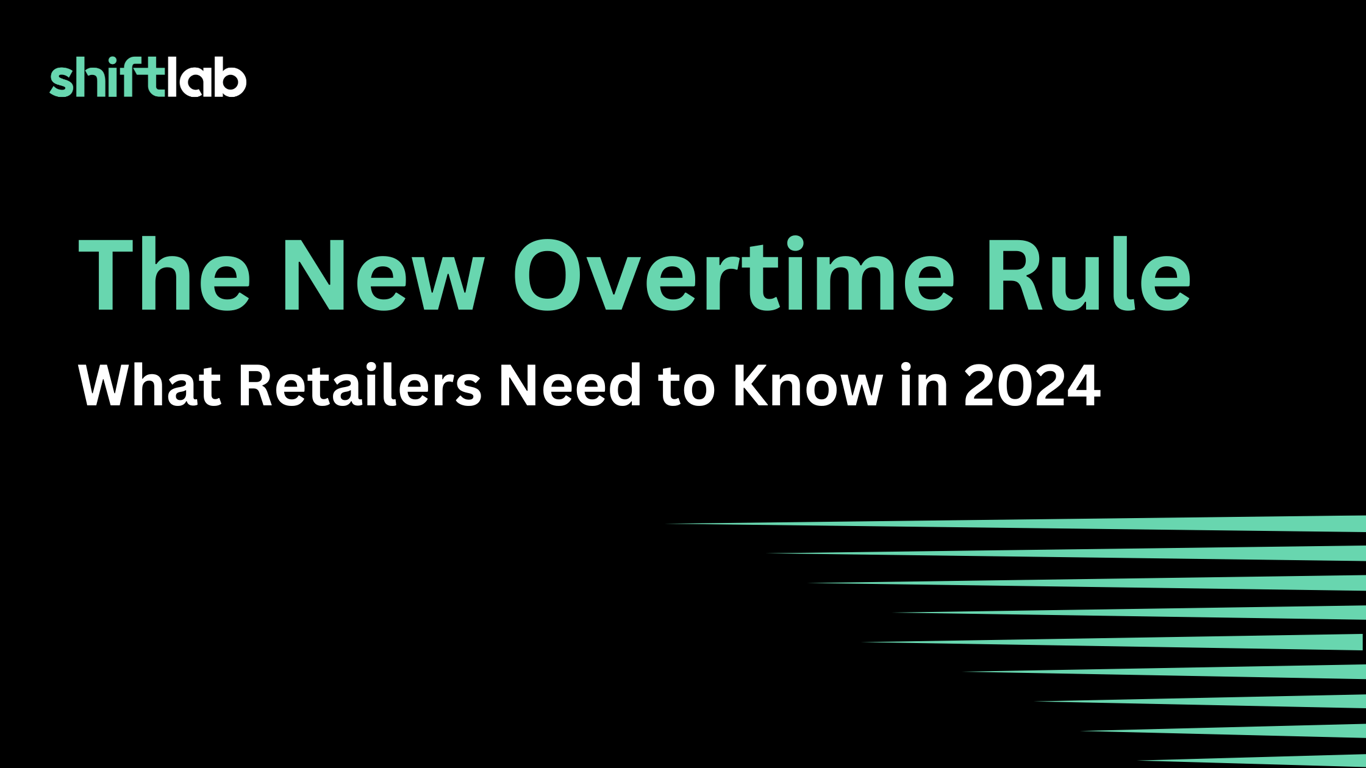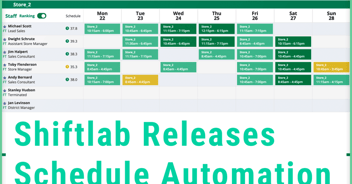
The New FLSA Overtime Rule: What Retailers Need to Know in 2024
Starting this July (2024), a significant change in U.S. labor regulations will impact millions of salaried workers.
The U.S. Department of Labor (DOL) is implementing a new overtime rule. This rule will require employers to adjust how they compensate certain employees under the federal Fair Labor Standards Act (FLSA).
Effective July 1, 2024, and again on January 1, 2025, the DOL will raise the minimum salary threshold for exempt employees — those typically classified under executive, administrative, or professional roles. This adjustment means employers must either raise salaries substantially to meet new thresholds or start paying affected employees overtime for hours worked beyond 40 per week.
The new rule introduces compliance challenges as employers will need to accurately track salaried employees' hours, compute overtime rates correctly, and maintain meticulous records to ensure adherence during audits.
In this post, we’ll share a breakdown of what businesses need to know about the DOL's new overtime rule so your organization can be prepared.
Key Changes in the FLSA Overtime Rule
The DOL's revised overtime rule introduces several key adjustments:
- Starting July 1, 2024, the minimum annual salary for exempt executive, administrative, or professional employees rises to $43,888. By January 1, 2025, this threshold will increase further to $58,656.
- For highly compensated employees (HCEs), the salary threshold will increase to $132,964 on July 1, 2024, and to $151,164 on January 1, 2025. Previously, the federal minimum for HCEs was $107,432.
- These thresholds will be adjusted every three years starting from July 1, 2027, to keep pace with inflation and market salary changes.
Which Employees Are Affected?
The new FLSA overtime rule affects employees often referred to as “white collar” exempt workers. This includes salaried executive, administrative, professional, and highly compensated employees.
Although employers need to make a case-by-case assessment of whether their employees qualify for one of the white collar exemptions or not (based on their primary job duties and salary amount), some common jobs that can fall under these categories include:
- Managers and some shift leads.
- Office staff including finance, accounting, tax, quality control, purchasing, marketing, public relations, internet and database admin, human resources, compliance, and others.
To get more technical, white collar exempt employees must meet the following criteria:
- They are paid on a salary basis and earn at or above the salary threshold; and
- Their primary job duties are exempt job duties. More on that below.
Each white collar exemption has its own requirements relating to the specific duties the employee must perform to qualify. For more details on the different exemptions, be sure to consult the resources provided by the DOL.
Actions for Employers
Employers must evaluate their workforce to determine which employees will fall below the new salary thresholds. For those affected:
- Increase salaries to meet the new thresholds to maintain exempt status.
- Alternatively, reclassify employees as non-exempt, making them eligible for overtime pay. This option requires accurate tracking of hours worked beyond 40 hours per week and appropriate overtime compensation.
Simplifying Compliance
To streamline compliance with the new regulations:
- Employers should conduct thorough audits of their employee classifications and payroll records.
- Legal counsel can provide guidance on correctly classifying employees and navigating the impacts of the new rule.
- Utilizing digital workforce management tools like Shiftlab can help manage time tracking and overtime and ensure accurate compliance with labor regulations.
How Shiftlab Can Help
Time & Attendance
Designed for retail, Shiftlab's Time Clock app integrates seamlessly with our leading scheduling platform, ensuring accurate timekeeping and compliance with labor laws.
Our automated features prevent early clock-ins and simplify payroll preparation, reducing manual adjustments and unbudgeted labor costs. With biometric integration, real-time notifications, and mobile accessibility, Shiftlab's Time Clock App enhances workforce management, saving time and resources for your retail business.
Overtime Alerts and Tracking
Streamline labor compliance with the ability to prevent early break returns and receive real-time overtime alerts. Set break and overtime rules to comply with local, state and federal labor laws.
Streamline Compliance
Shiftlab helps you avoid costly compliance fees with built-in tools like custom break management and break attestation forms.
Reporting
We offer a full suite of labor exception reporting and FSLA coverage. Track timesheet data and restrict short-notice changes. For more information on how we can help you manage compliance with the new FLSA overtime rule, book some time with us today!
This information is not intended as legal advice. You should seek specific legal advice before acting with regard to the subjects mentioned herein.
%201.png?width=564&height=119&name=Shiftlab_Logo%20(Black)%201.png)



